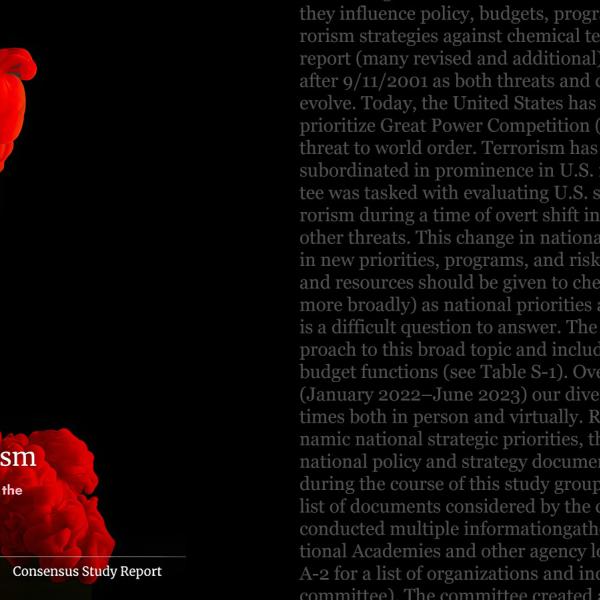Nunn School's Kosal Helps Lead National Academies Consensus Report on Chemical Terrorism
Nunn School's Kosal Helps Lead National Academies Consensus Report on Chemical Terrorism
What's happening: Margaret E. Kosal, associate professor in Georgia Tech's Sam Nunn School of International Affairs, played a key role in developing a new consensus report by the National Academies of Sciences, Engineering, and Medicine (NASEM) looking at U.S. strategies to prevent or respond to a chemical attack. Kosal, who has a Ph.D. in chemistry and extensive national security expertise, served as vice chair of the study committee.
What is a NASEM consensus report? These rigorous reports are the gold standard in public science and policy guidance, providing policymakers, industry, and the public with evidence-based, authoritative advice on complex scientific, engineering, and health-related issues. This one was ordered by Congress and took nearly two years to complete.
Why it matters: While the U.S. hasn’t yet seen a major chemical terrorism attack in recent years, terrorists have used chemical agents more often than any other WMD. The committee concluded that the threat remains significant domestically and internationally. Their report highlights the need to maintain robust counter-terrorism measures while adapting to the United States’ shifting strategic priorities.
Among the key findings:
- After decades of focusing on terror groups, U.S. strategy now prioritizes state actors and interstate competition. This could potentially affect funding and attention to counter-terrorism efforts, the committee said.
- The U.S. needs to align its budget priorities to its new strategic direction to better prepare the nation to deter and, if necessary, respond to such attacks.
- Widespread availability of industrial chemicals and little visibility on potential insider threats exacerbate the threat.
- The committee also stressed a critical need to support basic scientific and social science research specifically related to countering chemical terrorism, such as understanding social behavior related to emerging threats.
- The experts also said that working with international partners to enhance chemical security and identify, prevent, counter, and respond to chemical and other weapons of mass destruction (WMD) threats worldwide help make the U.S. safer.
“We shouldn’t, even unintentionally, shift to a strategy of depending on us ‘being lucky’ to stop terrorists who want to acquire and use WMD,” Kosal said.
The bottom line: Kosal's leadership in this significant national security report underscores the Nunn School's and Georgia Tech's critical contributions to addressing complex global threats and highlights the school's expertise and commitment to shaping effective national security policies.
